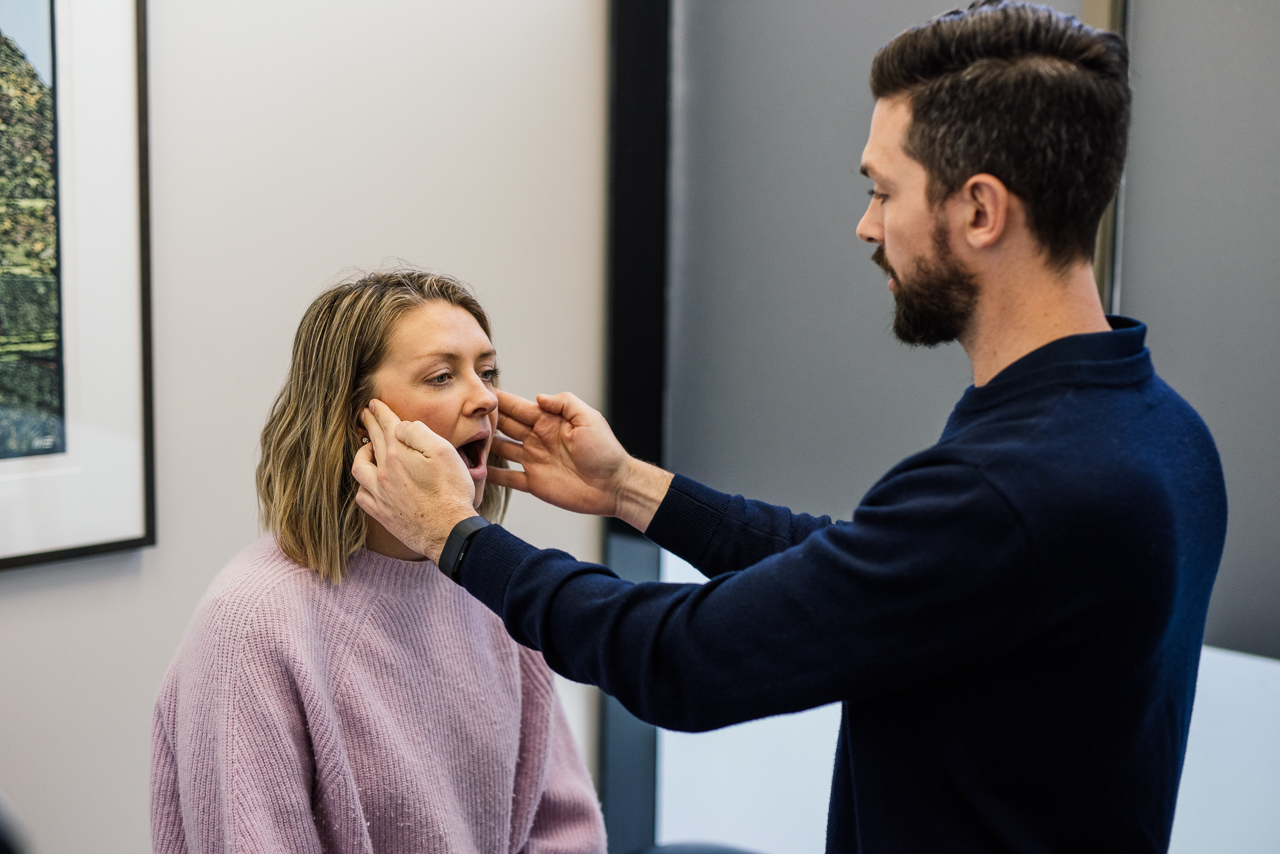The temporo-mandibular joint (TMJ) is where the jaw attaches to the skull, and it is located just in front of each ear. Each joint has a cartilage disc inside keeping the bones apart to protect them from wear and tear, and for shock absorption. The jaw joint is surrounded by a capsule enclosing it. The jaw movement is driven by many muscles responsible for its different actions.
Disorders of the TMJ are often referred to as TMD or Temporo-mandibular disorder. Injury and other conditions that routinely affect other joints in the body, such as sprains, inflammation, arthritis and trauma also affect the TMJ. TMJ disorders are characterized by pain or tenderness over the jaw, neck or face region. Other common symptoms include:
- Limitation of movement in the jaw and neck
- Clicking, grating or popping sounds (which may or may not be accompanied with pain)
- Locking in an open or closed mouth position
- Difficulty or fatigue with chewing and talking
- Toothaches or sensitive teeth
- Ear symptoms including earaches, dizziness, hearing problems and ringing in the ears
- Symptoms can occur on one or both sides of the face, head, or jaw and may affect your ability to use your jaw
Common causes may include:
- Acute trauma such as a blow to the face
- Clenching or grinding teeth (bruxism)
- Biting nails or pencils
- Previous neck injury such as whiplash
- Extended dental work
- Incorrect upper body posture
- Stress and anxiety
- Smoking
How can my physiotherapist help?
Your physiotherapist will thoroughly assess your condition and make recommendations specific to you. Usually this will include manual therapy, education and advice, and formulation of an exercise program to strengthen muscles supporting the jaw, shoulder blades and cervical spine. If necessary, referral to other health professionals, or for medical imaging may be indicated.
Tips for managing and preventing TMD
- Use of ice or heat as indicated by your physiotherapist
- Be aware of clenching your teeth during the day and the resting jaw position — teeth should be relaxed and your tongue on the roof of your mouth
- Practicing good posture
- Eating a soft diet
- Avoid chewy foods such as toffee, gum, nuts, ice and popcorn
- Avoid opening your mouth excessively
- Whilst yawning- support your jaw manually, keep tongue on roof of mouth
- An opinion from a Dentist is always very helpful


